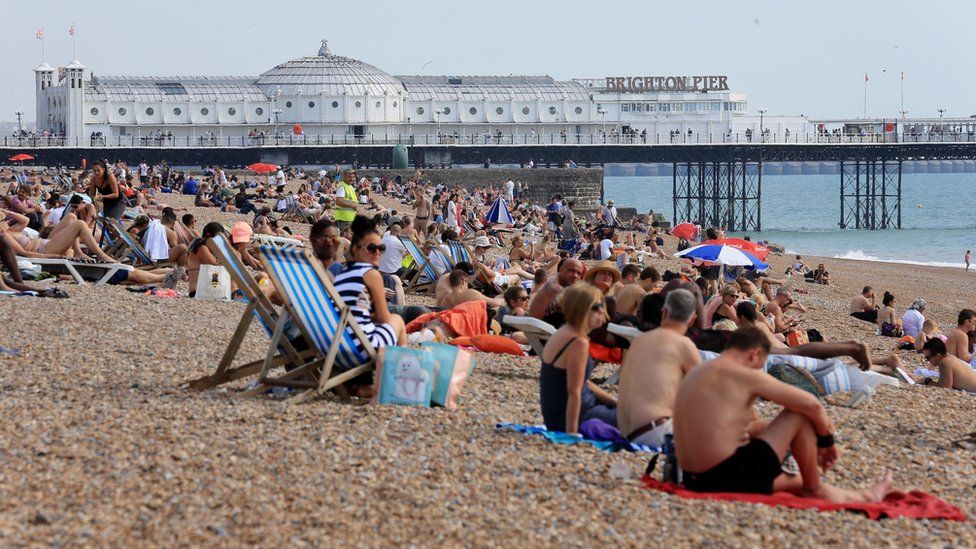Prescribing holidays 'could help fight infections'
- Published

Scientists are investigating whether prescribing holidays, music or a change of scene might boost our immune system and help us to fight off disease.
In tests on mice, they discovered that sprucing up their living space, with a running wheel, toys and a colourful box, did wonders for their T cells.
These cells are essential for immunity and help to protect against disease.
The Queen Mary University of London researchers said the same approach should be tested on humans.
In their study, the mice living in the enriched surroundings of a larger cage with lots of stimulation - as opposed to a plain, old cage of sawdust - were found to be better prepared for fighting infections.
Higher levels of molecules which are good at responding to infections were found in their white blood cells.
'Holiday resort'
Prof Fulvio D'Acquisto, lead study researcher from QMUL, said: "This effect is remarkable because we haven't given them any drugs.
"All we've done is change their housing conditions.
"You could say that we've just put them in their equivalent of a holiday resort for two weeks and let them enjoy their new and stimulating surroundings."
In another study on mice with disease, he discovered that very small changes in bedding had an impact on their health.
Giving them better quality blankets and more comfortable sleeping conditions meant their illness was shortened from four days to two days.
When it comes to the human immune system, how the environment we live in influences the body's primary defence against disease is not known.
But it is thought that factors such as pollution, location, psychological state and social status could all play a role.
Body boost
Prof D'Acquisto says research shows that there is a link between emotional response and immune response.
No-one yet knows how this works but one theory is that heightened emotion makes bone marrow perform better, which in turn receives more nutrients, boosting the body's immune system.
He says we should all be thinking about what we can do to moderate our own emotions - and not pretend we are all the same.
"We shouldn't flatten out personality.
"We should acknowledge the differences and ask - what can I do to make me happier? Should I change my living conditions?
"We should really ask what's best for us."
Whether it's a walk on the beach, listening to a piece of music or more comfortable bedding in hospital, Prof D'Acquisto wants to find out if patients' health and well-being could be improved by making small changes to our environment.